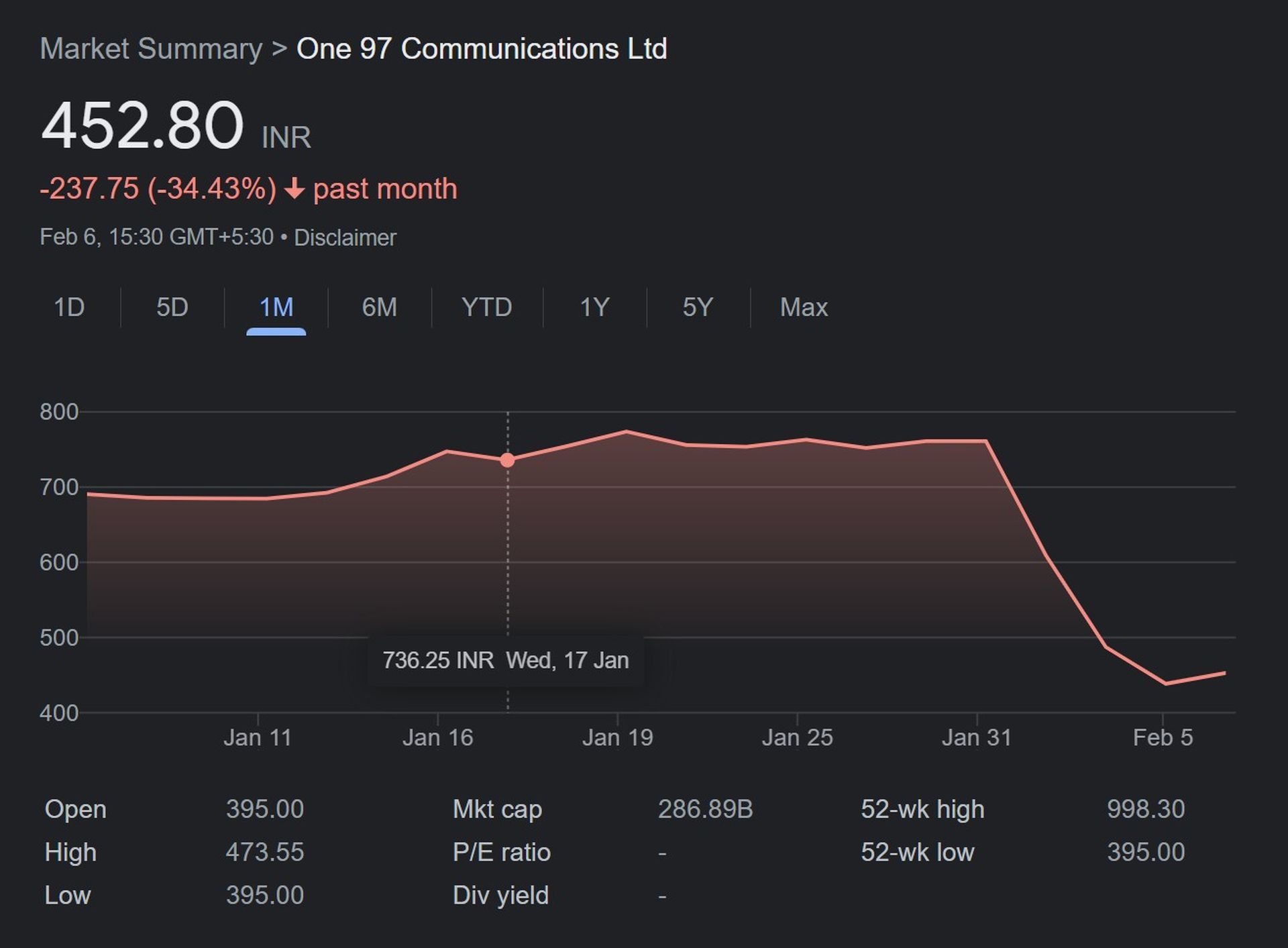Did RBI ban Paytm in India? Even small regulatory changes can have big impacts and India’s top digital payment platform, Paytm, recently hit this regulatory roadblock. The Reserve Bank of India (RBI) put restrictions on Paytm’s banking arm, Paytm Payments Bank Ltd. (PPBL), due to compliance issues. This not only affected Paytm’s stock prices but also sparked a debate on balancing innovation with rules in India’s fintech world.
It is crucial to understand why RBI acted and what it means for Paytm and digital banking. Let’s explore this regulatory twist and its implications for the future of digital finance in India.

Did RBI ban Paytm in India?
The Reserve Bank of India (RBI) did not outright ban Paytm but imposed restrictions on its subsidiary, Paytm Payments Bank Ltd. (PPBL). These restrictions were a response to concerns raised by an external audit report regarding persistent non-compliance issues and material supervisory concerns within the bank. As per the RBI’s instructions, PPBL is mandated to adhere to the following directives:
- Halt in new deposits and transactions: Effective February 29, 2024, PPBL is prohibited from accepting new deposits or conducting credit transactions, including top-ups, in any customer accounts, prepaid instruments, wallets, FASTags, National Common Mobility Cards (NCMC), etc. However, interest, cashbacks, or refunds may still be credited to customer accounts.
- Unrestricted withdrawals and utilization: Customers are permitted to withdraw or utilize balances from their accounts, including savings bank accounts, current accounts, prepaid instruments, FASTags, NCMC cards, etc., without any restrictions, up to the available balance.
- Limitation on banking services: Except for withdrawals and balance utilization, PPBL is prohibited from providing any other banking services, including fund transfers (such as AEPS, IMPS, etc.), BBPOU, and UPI facility, effective February 29, 2024.
- Termination of nodal accounts: PPBL is instructed to terminate the Nodal Accounts of One97 Communications Ltd. and Paytm Payments Services Ltd. at the earliest, no later than February 29, 2024.
- Completion of pipeline transactions: All pipeline transactions and nodal accounts, initiated on or before February 29, 2024, must be settled by March 15, 2024. No further transactions shall be permitted thereafter.

Let’s delve into the reasons behind RBI’s actions in detail:
Paytm Payments Bank Ltd. (PPBL) has had a history of regulatory compliance challenges since its inception in 2017. As the country’s central banking authority, the RBI mandates strict adherence to regulations to ensure the stability and integrity of the financial system. Instances of non-compliance, such as violations of Know Your Customer (KYC) guidelines and account creation suspensions, undermine the trust and confidence in the banking system.
The RBI supervises and regulates banks to safeguard depositor interests and maintain financial stability. The external audit report likely highlighted significant supervisory concerns within PPBL, indicating lapses in governance, risk management, or internal controls. Such lapses can expose the bank to operational, financial, and reputational risks, necessitating regulatory intervention to mitigate potential harm.
Regulatory oversight aims to protect consumers from financial fraud, misconduct, and systemic risks. Any lapses in compliance or supervision within a banking institution can jeopardize the interests of depositors and users of financial services. By imposing restrictions on PPBL’s banking services, the RBI seeks to address concerns related to consumer protection and ensure that the bank operates in accordance with regulatory standards.
The RBI’s regulatory actions are also aimed at mitigating systemic risks that could threaten the financial system’s stability. Non-compliance issues within a bank, particularly one as prominent as Paytm Payments Bank, could have broader implications for the banking sector and the economy as a whole. By addressing these issues proactively, the RBI aims to maintain the resilience and soundness of the financial system.
It’s important to note that regulatory actions like the imposition of restrictions are often part of a broader process of dialogue and resolution between the regulator and the institution. While the restrictions may seem stringent, they serve as a mechanism to prompt corrective action and improve compliance standards within the bank. Paytm and PPBL are likely engaged in discussions with the RBI to address the underlying issues and restore full banking services in compliance with regulatory requirements.

Did RBI ban Paytm in India? Now you know the RBI’s decision to impose restrictions on Paytm Payments Bank Ltd. stems from regulatory compliance, supervisory oversight, consumer protection, and systemic risk mitigation concerns. These actions underscore the central bank’s commitment to maintaining the integrity and stability of the financial system while promoting the interests of depositors and users of financial services.
How to close Paytm Postpaid & What to do if Paytm PostPaid not working?
What is Paytm payment?
Paytm Payments is a digital payment service provided by Paytm, an Indian fintech company. It enables users to conduct a wide range of electronic transactions, including mobile recharges, bill payments, online shopping payments, peer-to-peer transfers, and utility bill payments. Paytm Payments operates through digital wallets and linked bank accounts, offering users a convenient and secure way to manage their finances digitally.





